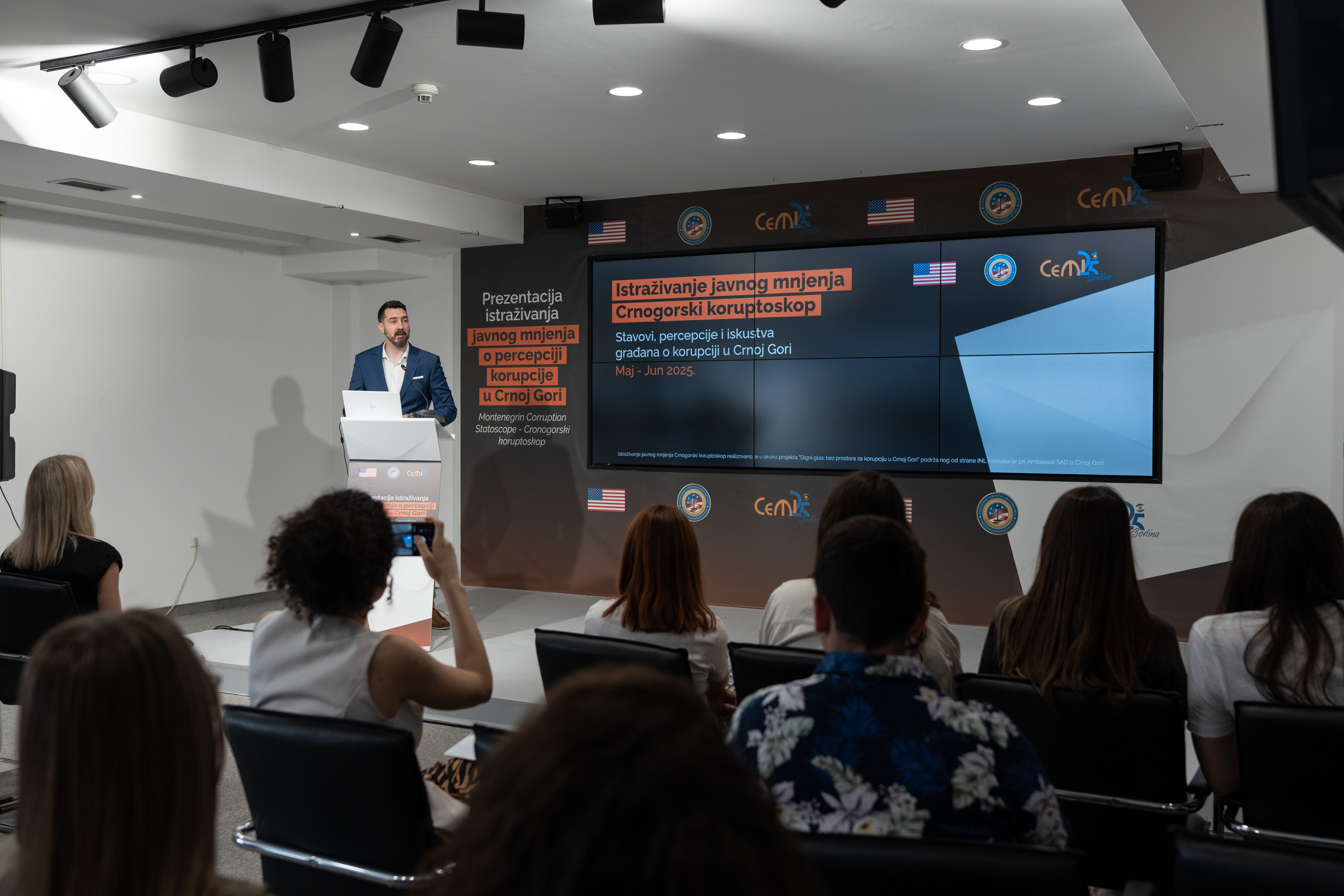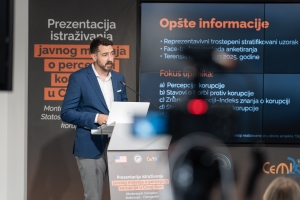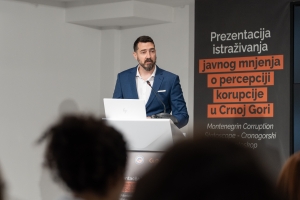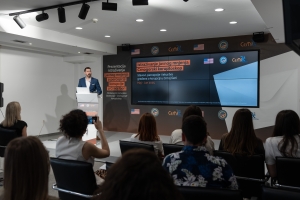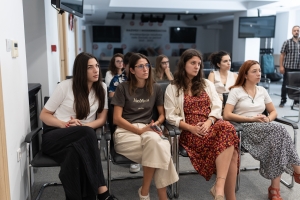More than 70 percent of Montenegrin citizens believe that corruption is generally or highly present in society. What is even more concerning is the fact that a significant number of respondents express a willingness to engage in corrupt practices themselves, by offering money, gifts, or services in certain situations.
This was stated at a press conference organized to present the findings of the Montenegrin Corruptoscope survey, conducted between May and June this year on a representative sample of citizens.
Nemanja Stankov, Head of the Public Policy Research Department at CeMI, noted that nearly half of the citizens (46.7 percent) believe that the level of corruption in Montenegro has remained unchanged over the past four years, while one third (32.5%) feel the situation has actually worsened.
“Despite formal progress and the declarative political will to fight corruption, the public perception is that the situation has not improved. In fact, many believe it has deteriorated,” Stankov stated.
According to the survey, 53.2 percent of respondents believe that high-level corruption cases are not sufficiently prosecuted, while only 7.1 percent believe that anti-corruption measures are implemented impartially and consistently.
“The conclusion is clear: citizens lack confidence in the effectiveness of anti-corruption mechanisms. They believe laws are applied selectively and that corrupt individuals largely go unpunished,” Stankov emphasized.
Particularly alarming are the findings regarding the social acceptability of corrupt behavior. Although a smaller percentage of citizens believe it is always acceptable to offer money (4.5%), a gift (8.5%), or a service (10.1%), as many as 18 percent believe it is sometimes acceptable to give money. The numbers are even higher when it comes to gifts (38.1%) or providing services (35%).
“While the number of those who always approve of such actions is relatively low, when we add those who find them sometimes acceptable, we are left with a serious percentage of citizens who could potentially be complicit in corrupt practices,” Stankov warned.
The research also reveals that citizens more often offer bribes proactively rather than being explicitly asked to do so, especially in the sectors of education, healthcare, traffic police, and public administration.
“While both scenarios are, of course, unacceptable, a significant number of citizens, from one in four in the case of civil servants to nearly one in two in the case of healthcare professionals, believe it is more acceptable to offer a bribe proactively than to wait for it to be requested,” said Stankov.
Among those who had contact with specific institutions in the past 12 months, 28.9 percent reported that inspection officers demanded or expected a bribe. Similar experiences were reported by 26.2 percent of those who interacted with healthcare institutions and 23.3 percent of those who had contact with the police.
“This is a key problem identified by this research. When you ask a respondent whether they had contact with the police in the past 12 months, and among those who answer affirmatively, follow up by asking whether the police officer requested or expected money, gifts, or services during those interactions, you get a result of 26.2 percent,” Stankov explained. “These are concrete indicators of the presence of corruption in everyday situations. When one quarter of respondents with direct experience confirms such practices, it is clear that the issue goes beyond perception and points to real, systemic problems,” he stressed.
“This is further supported by the finding that 42.8 percent of citizens reported having personally experienced or witnessed some form of corruption in the past 12 months,” Stankov concluded.
The Montenegrin Corruptoscope survey was conducted within the project “BLOW THE WHISTLE: No Corruption Blind Spots In Montenegro”, supported by the Bureau of International Narcotics and Law Enforcement Affairs (INL) at the U.S. Embassy in Montenegro.
